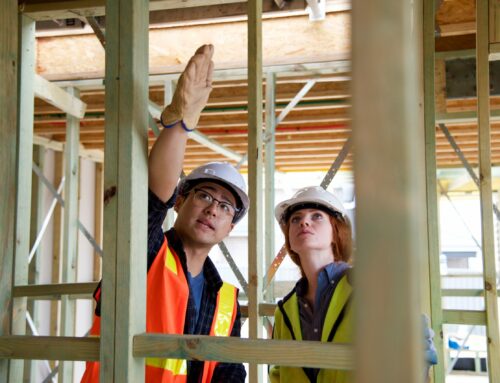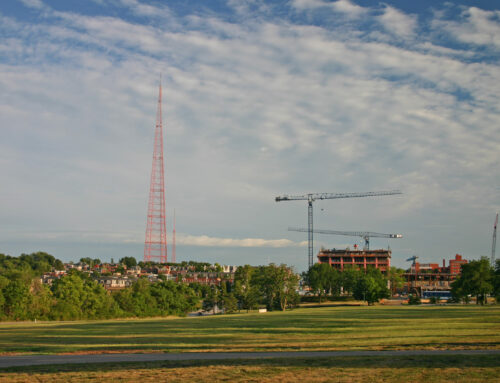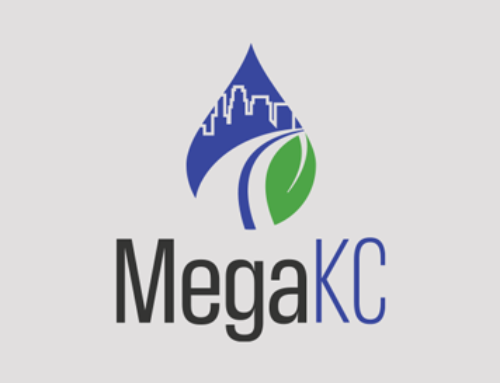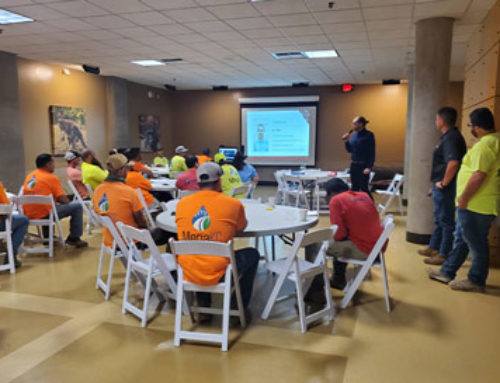What Is Concrete Flatwork?
Concrete flatwork is any piece of concrete laid on a horizontal plane. Though, it can better be defined as driveways, sidewalks, curbs, parking lots, and many other concrete functions that surround us almost everywhere. As a business owner, it’s important to know the various types of concrete flatwork and what different types of flatwork features mean for you.
Different Types of Concrete Flatwork
Driveways
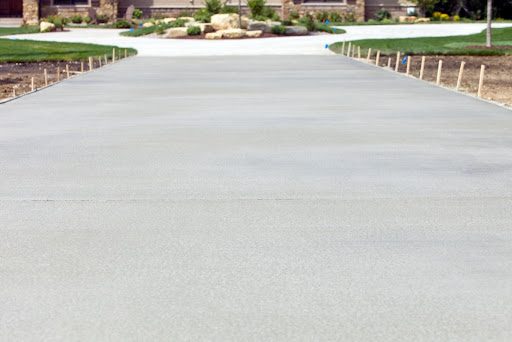 One of the most familiar examples of concrete flatwork includes driveways—even though most driveways don’t seem completely flat. Concrete driveways are laid on a slight slope to prevent water from pooling, as standing water can cause damage to concrete, which is a porous material.
One of the most familiar examples of concrete flatwork includes driveways—even though most driveways don’t seem completely flat. Concrete driveways are laid on a slight slope to prevent water from pooling, as standing water can cause damage to concrete, which is a porous material.
Certain depths of concrete require rebar to reinforce it against increased pressure. Rebar is a metal rod that is used to support material like concrete. Most driveways for everyday vehicles are about 4 inches thick, but for larger trucks and vehicles, many are 6-8 inches thick, and concrete that thick usually performs best when rebar is installed.
In general, reinforcing is recommended for almost all concrete flatwork. Although concrete is an incredibly strong material, it will experience cracking.
When concrete cracks, there are a few different possible outcomes. For example, uncontrolled concrete cracking outside can cause issues. Let’s say the driveway of your business experiences a crack, and water gets inside from rain or snowfall. When that water freezes, which is likely in the winter months, the concrete can crack and expand, causing further damage. These damages can be prevented, though, with planned expansion joints, control saw joints and proper maintenance.
Sidewalks
Sidewalks are another example of concrete flatwork and serve various benefits to a business. One of the greatest benefits many might not consider is the accessibility sidewalks offer businesses.
For people with difficulty walking, whether in a wheelchair, utilizing a cane or walker, or needing sound footing while walking, sidewalks can help customers access your business safely and with ease. Sidewalks also allow people to avoid walking through grass, which can damage landscaping over time.
While all sidewalks are made out of the concrete mix, which includes water, cement, sand and small rocks, sometimes certain finishes are added to ensure that the concrete surface isn’t slippery when wet.
Concrete is temperate and will expand or contract depending on the climate. When installing a sidewalk, expansion joints ensure that concrete has space to do just that while preventing cracks. There are various situations when expansion joints are used, but we see them most commonly in sidewalks because sidewalks are thin compared to other concrete flatwork.
Curbing
Concrete curbing is typically installed along the edge of a drive lane or parking area. It has two main purposes: to define the boundary of the surface and to direct water flow.
Concrete curbing comes in many shapes and sizes. One of the most common is called “curb and gutter.” A curb and gutter installation involves pouring a single section of concrete that contains both the concrete curb and a lower height flat surface (the “gutter”) that extends out into the drive lane or parking area. The gutter can be level, sloped or depressed.
Parking Lots
The state of your parking lot tells customers a lot about your business before they ever step foot in the door. This makes them an essential investment. Having a smooth, efficient parking lot with no potholes, properly painted lines, and traffic flow can increase the number of patrons visiting your building and affect your business’s overall appearance.
Choosing a professional contractor can save time and money, as a properly installed parking lot can help prevent accidents, injuries, and even confusion or frustration from your customers.
Dumpster Pads
Another example of concrete flatwork, commonly used in commercial settings, are dumpster pads. Dumpster pads are a great feature to add to your business because they create a space for dumpsters to reside without damaging the grass or exterior of your building.
When dumpster pads are poured, they usually have rebar to support the heavy weight of industrial-size dumpsters. In addition, draining systems can also be added to prevent the accumulation of standing water.
How Much Does Concrete Flatwork Cost?
As mentioned above, many different factors go into concrete flatwork, which can impact its price. When you hire a contractor for all concrete work, labor fees are included in the price. Before any add-ons, there is a base price for a concrete flatwork job.
Adding things like rebar reinforcement or special additives to protect the concrete from freezing can also affect the price. Certain aesthetic add-ons can also be incorporated into concrete flatwork, like stamping and coloring, which gives the concrete a different texture or design. Other contractors will have specific price points, but concrete pricing is generally based on a price per square foot system, usually ranging from $6 to $20 per square foot.
Get a Quote For Your Concrete Flatwork Today
MegaKC is here for any concrete flatwork installation needs. With 30 years of experience, we ensure that any concrete project is performed with your business in mind. Contact us today for a free quote for your next concrete flatwork project.

